Mykola: The man who refused to flee war
As Russian forces reduced his hometown to rubble, Mykola Honchar stayed to care for his mother, writes Oleg Petrasyuk
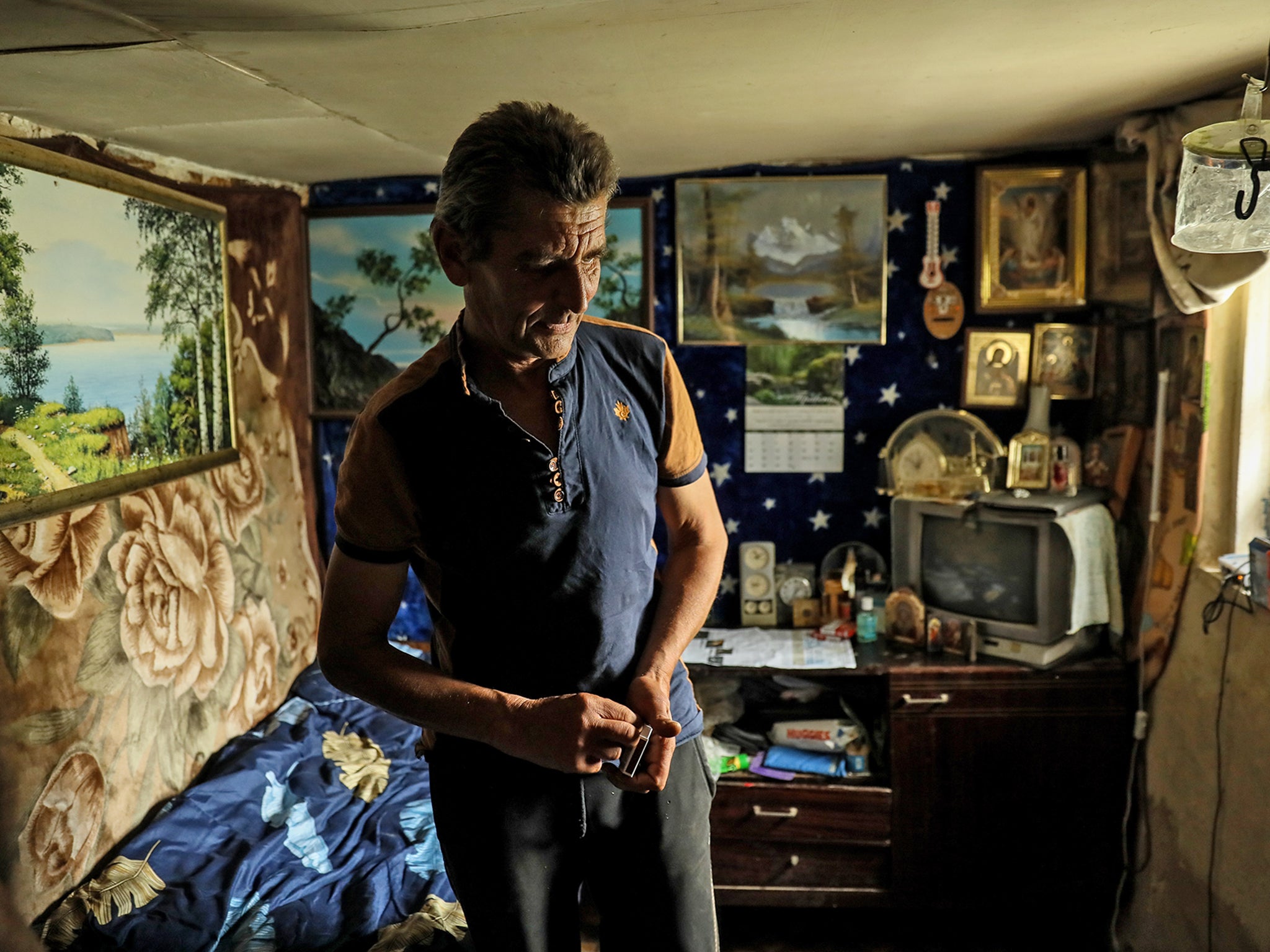
Before Russia invaded Ukraine, the village of Bohorodychne in the eastern region of Donetsk was home to about 800 people.
When it came under attack from invading Russian forces in June 2022, all of its residents fled as their town was reduced to rubble – all except for Mykola Honchar, who chose to stay behind in his hometown to care for his ailing, elderly mother.
“It’s my motherland. My mother is Russian but I was born here... where can I go?,” says the 58-year-old.
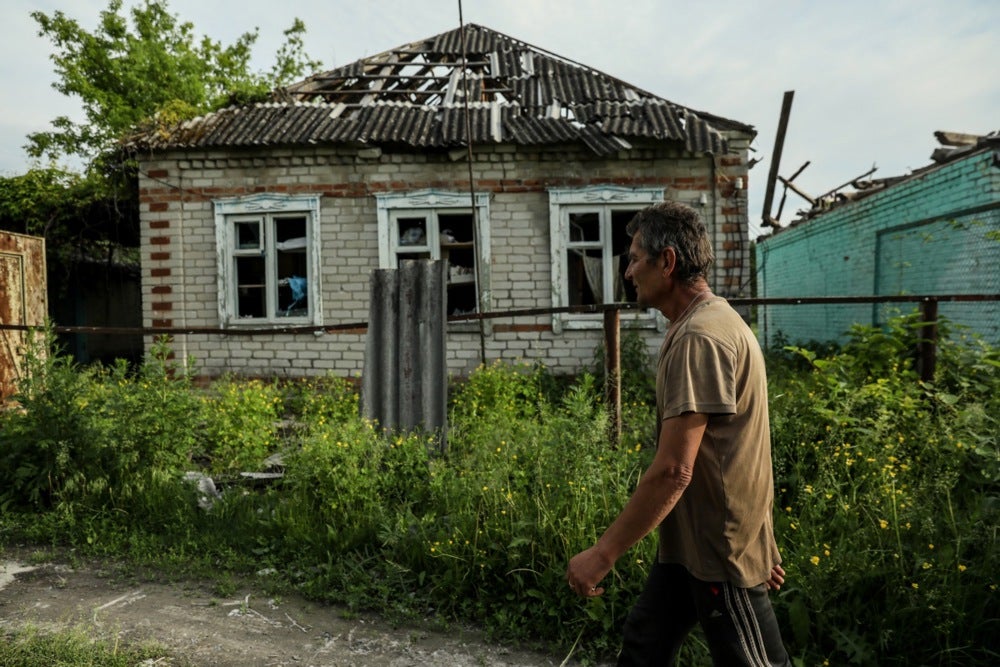
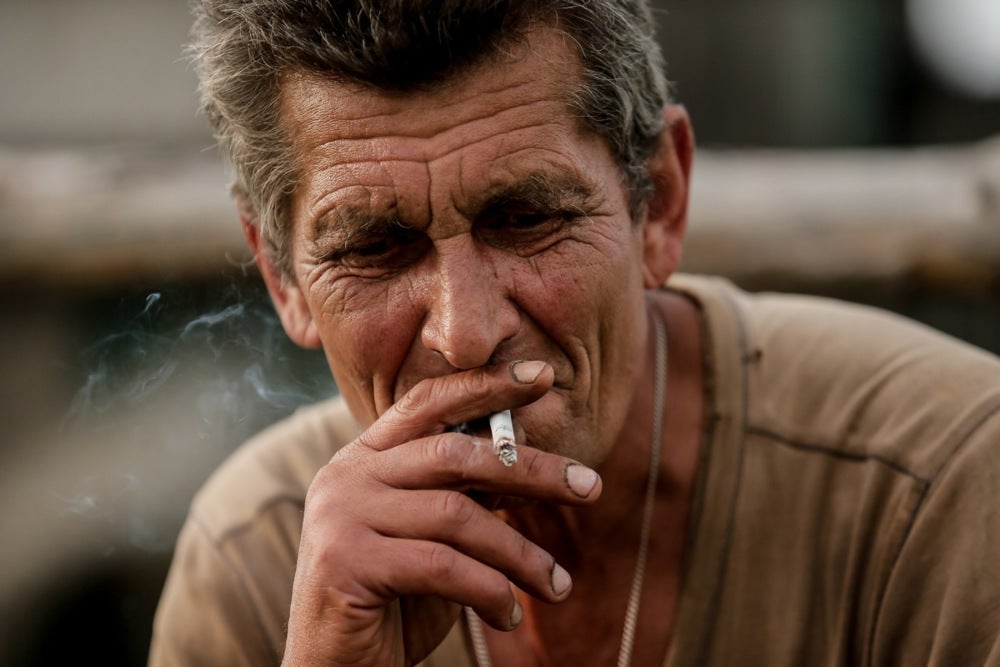
“It makes no sense to go, and where can I go from here? She is 91 [his mother], you can see she is sick. What will I do with her there?”
He also rejected the idea of evacuating to Russia. “What will I do there? Mine for gold?”, he asks.
It’s my motherland. My mother is Russian but I was born here... where can I go?
Struggling to survive
As Mykola watched all of his neighbors flee, he hunkered down with his mother and his dog Putin, a name that Ukrainian soldiers came up with “because he is evil, trying to bite everyone”.
Mykola braved the summer of 2022, relying on food rations delivered by Russian soldiers to keep him and his mother alive.
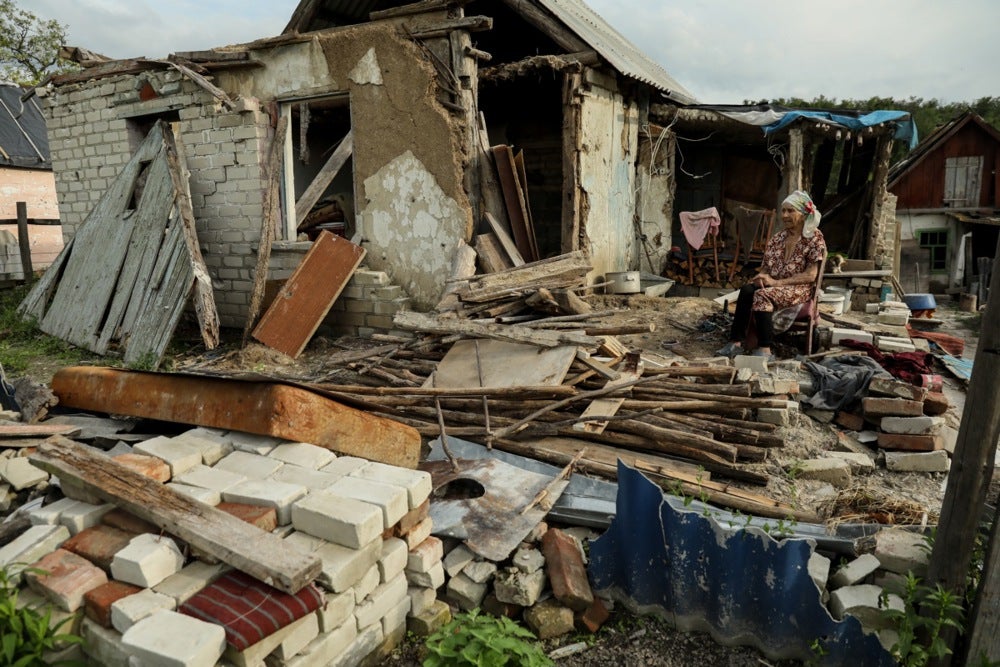
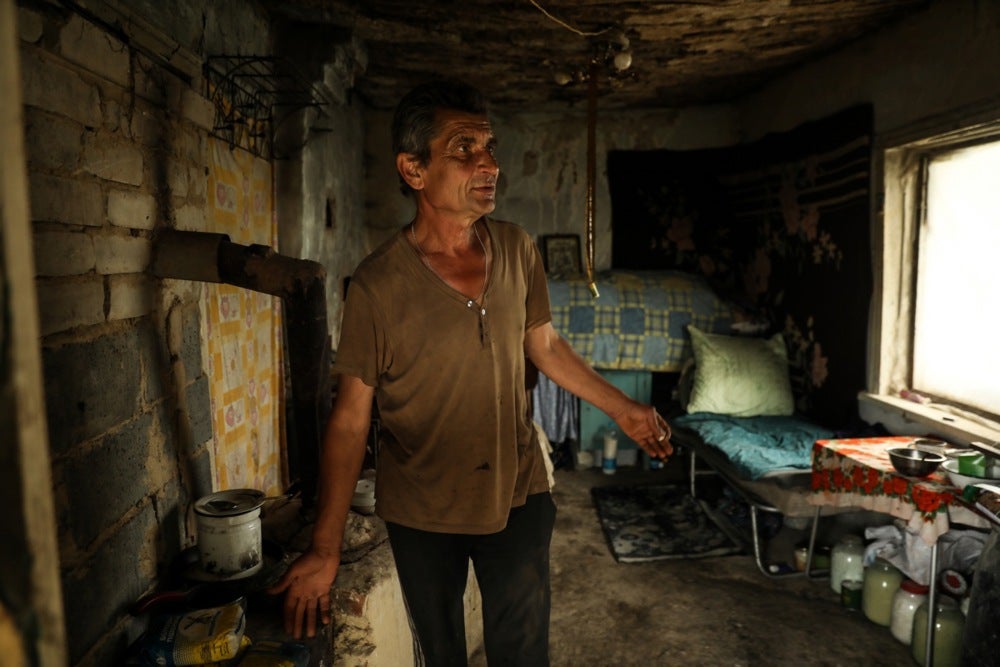
“They gave us cigarettes, dry rations including canned meat,” he says. “The main thing was to have something for Mother.”
If the situation were normal, Mykola says, he would have brought her for treatment in the hospital for medical screenings and tests.
He used to be able to rely on help from his brother Vasyl, who along with his wife was killed by mortar fire in July 2022 as Russian and Ukrainian forces vied for control of the area.
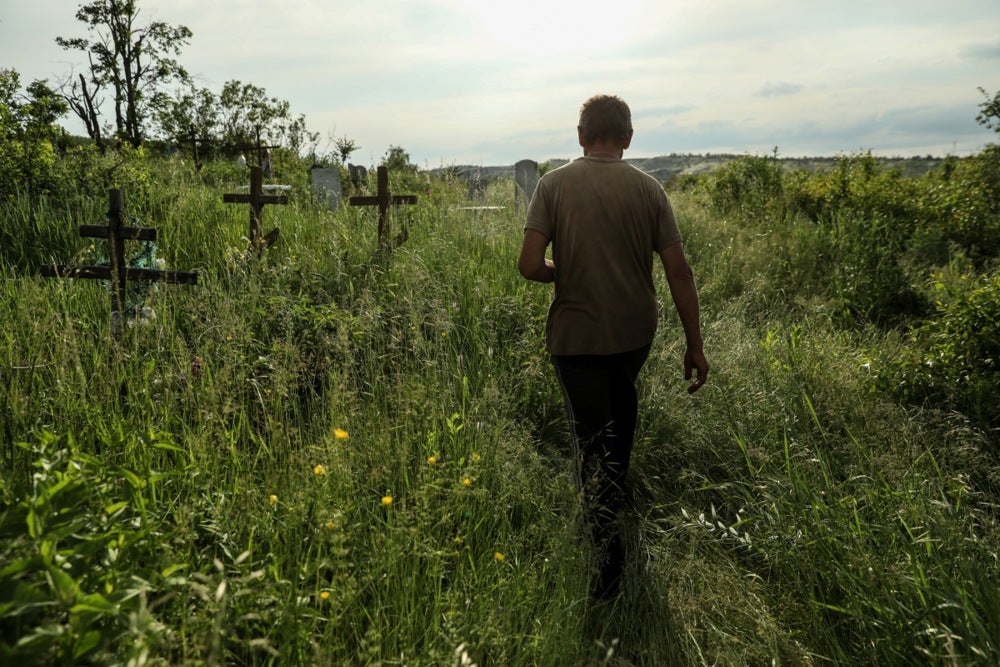
“Before the war, with my brother, we took her to the hospital in Semenivka [about an hour’s drive north]. Now, who would visit her? [She’s] better [off] here, at home, with food and care.”
Some of the residents of Bohorodychne have now started to return after the Russians’ westward advance stalled and they were pushed back by Ukrainian forces last September.
By the end of May 2023, a mere 18 people had returned to try to rebuild their homes and their lives.
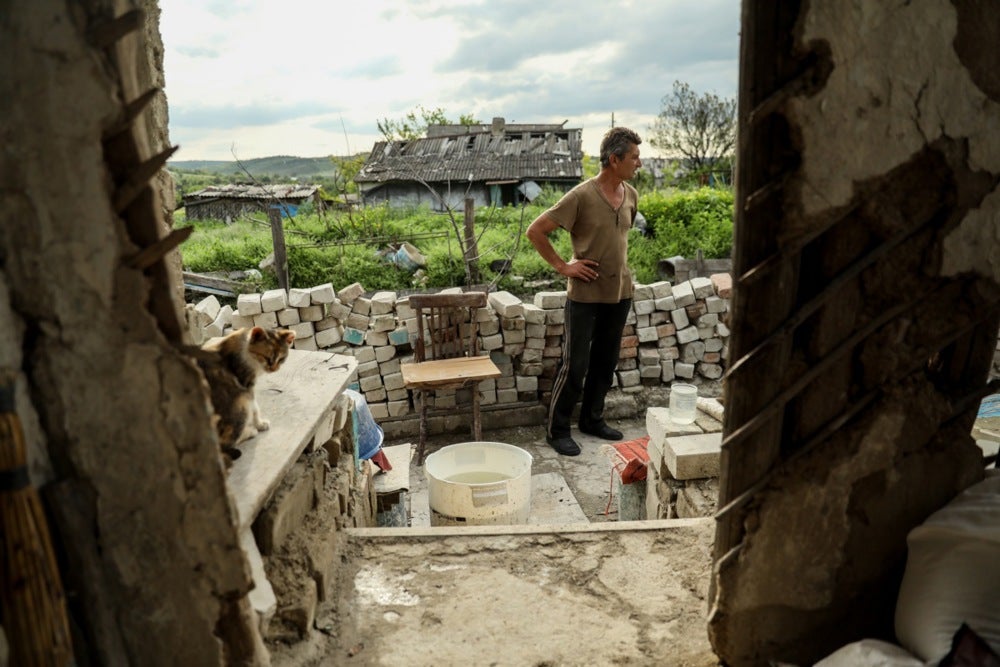
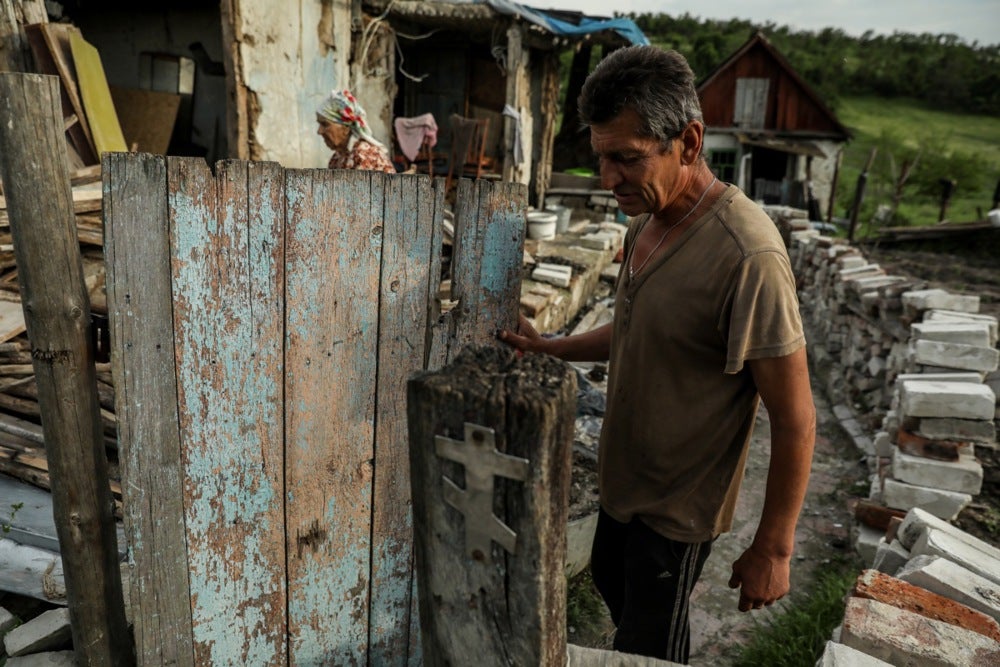
Rebuilding
The area was retaken in mid-September by Ukraine’s armed forces, who found in the Russians’ wake a trail of destruction and death, the town pillaged and abandoned, save for Mykola, his mother and several homeless cats and dogs.
Even though the Russians have pulled out of the village, “there is no work because the bridge was destroyed”. The nearest town is Sviatohirsk, three kilometres away on the other side of the Siverskyi Donets river.
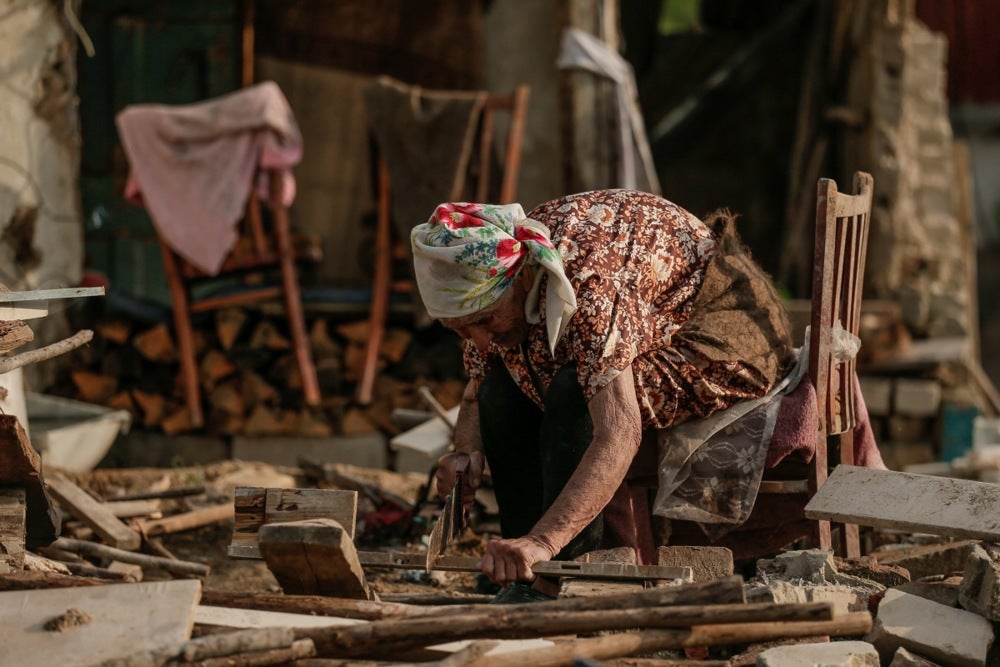
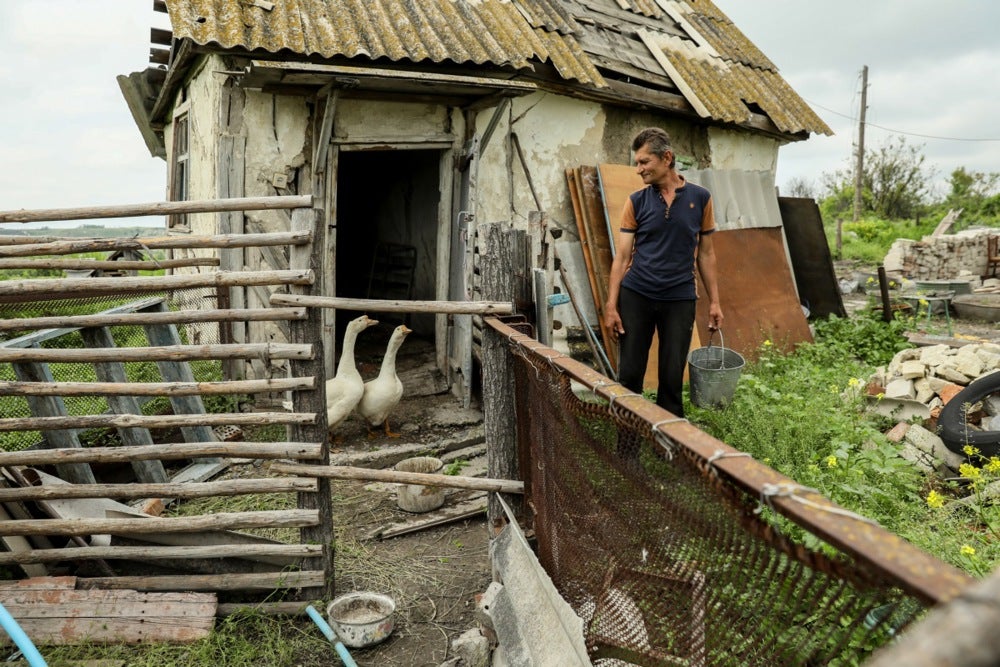
“The only thing you can do is walk among the ruins. [There is] nothing good,” Mykola says.
He now faces a summer of scraping together enough material to repair his house which was almost razed by the shelling last year.
“I need building materials and tools, [but] I don’t want to collect [them] from someone’s destroyed home,” he says.
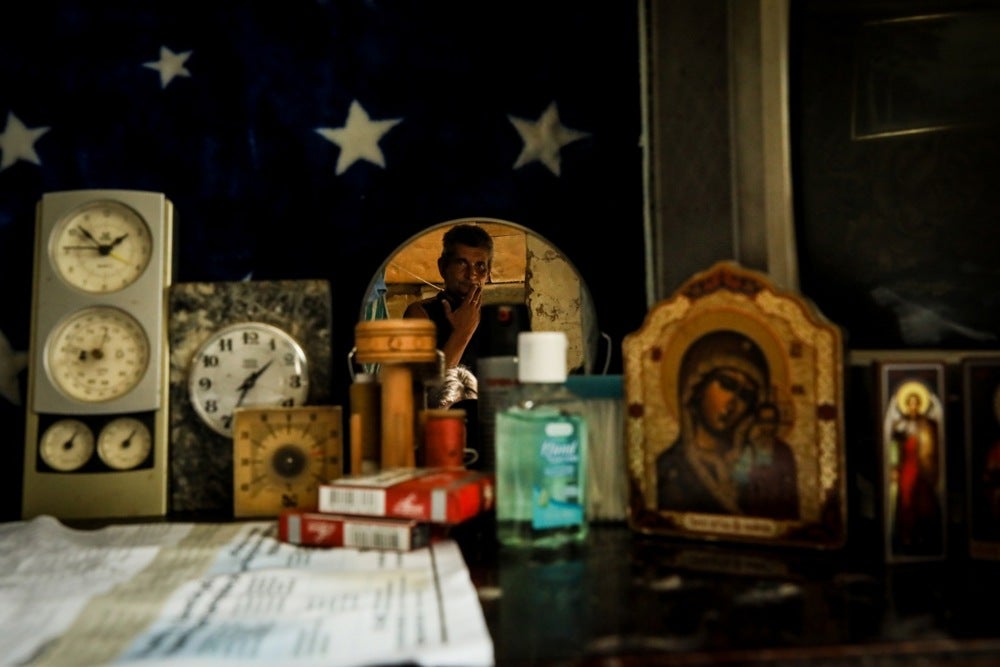
Mykola had been told that timber and pellets for stoves would be provided, but “they are only promises”.
Despite the destruction and disappointment, Mykola is still set on repairing his home to provide shelter for his mother, trying to remain positive by clinging to the fact that at least his home still has “a corner” standing.
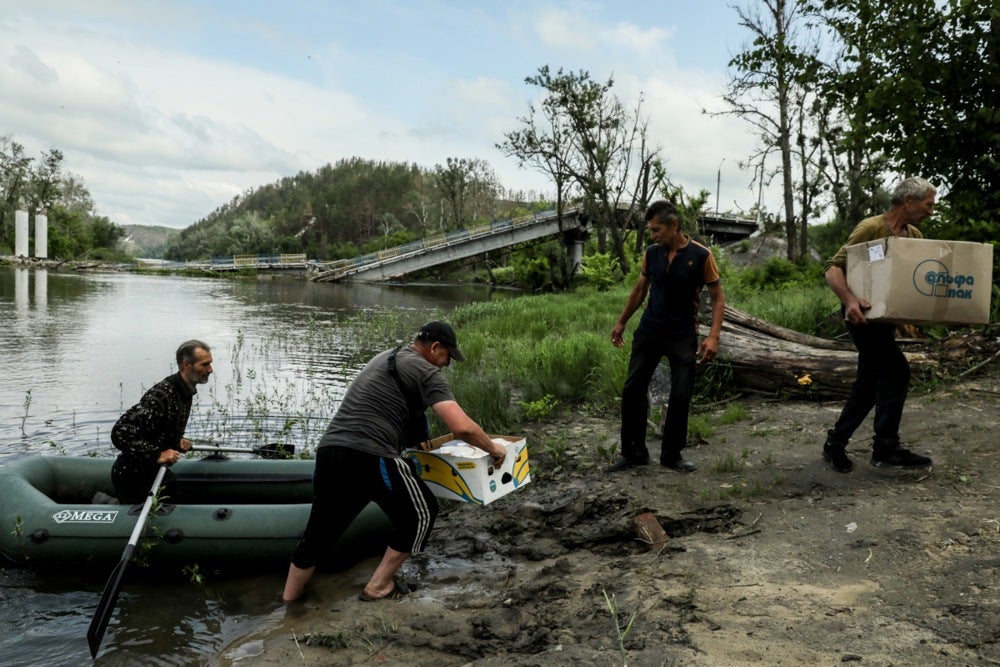
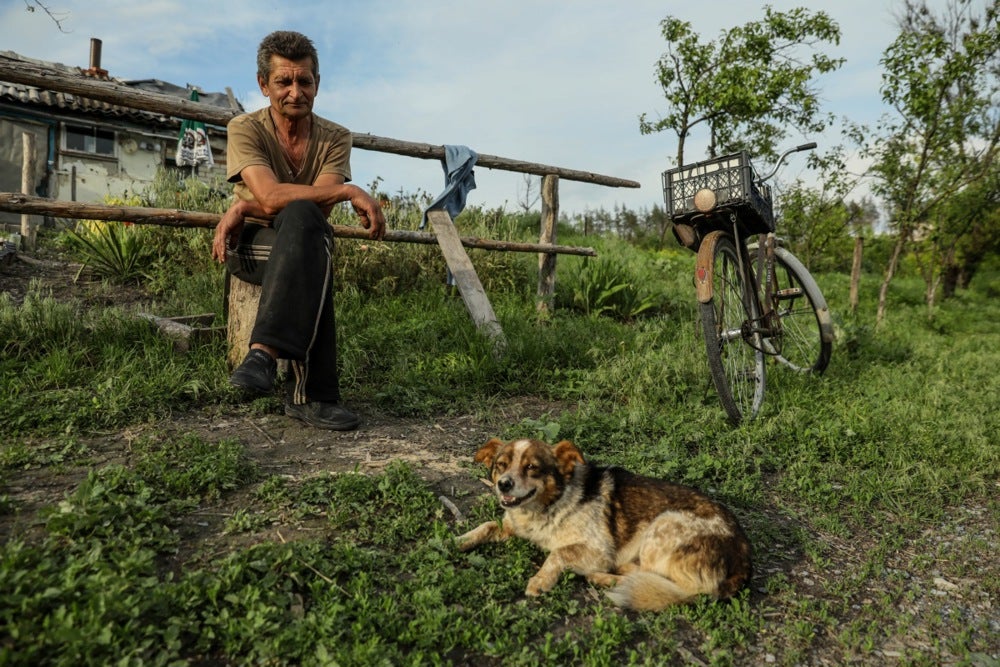
“Some people have had their houses totally destroyed – that’s grief. We will [survive]”, he says, determined not to spend the next winter as he did the last one.
“We plant potatoes and tomatoes. They will grow – as long as there is no more shelling.”
EPA
Join our commenting forum
Join thought-provoking conversations, follow other Independent readers and see their replies
0Comments